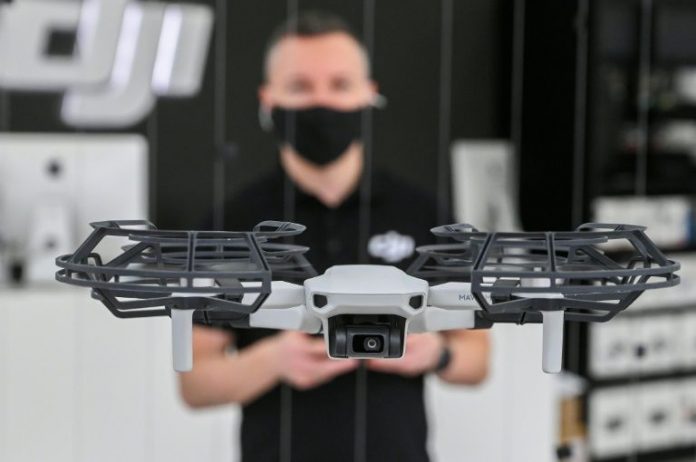Budapest: When Hungarian journalist Gabi Horn was called in by police last October about her investigative news site’s drone footage of a business tycoon’s estate, at first she thought a corruption probe had been opened.
“It turned out instead we had been reported for suspected ‘illegal acquisition of data’,” said Horn, 53, who works for the Atlatszo.hu outlet.
While that criminal case was eventually dropped by prosecutors, it came as a new law was adopted that Horn is convinced is aimed at hindering such investigations.
The government says the new regulation on aerial drones, in force since January 1, protects privacy and sets safety standards.
But it also punishes the publication of drone footage of property without the owner’s permission with up to one year in jail.
“That makes it harder for journalists to investigate suspected misuse of public money and EU funds,” Horn told AFP at Atlatszo’s office in Budapest.
The law adds to press freedom and corruption concerns that have dogged hardline Prime Minister Viktor Orban’s government since it came to power in 2010.
In 2019 the Reporters without Borders watchdog described the degree of media control in Hungary as “unprecedented in an EU country”.
Corruption monitor Transparency International meanwhile relegated Hungary in its latest annual index to joint bottom place in the EU alongside Romania and Bulgaria.
Budapest dismisses both organizations’ reports, as they are part-funded by the liberal US billionaire George Soros, who the anti-immigration Orban has long accused of leading “pro-migration” forces.
A small share of Atlatszo’s funding also comes from the Hungarian-born Soros’ Open Society Foundations.
Using drones has become more valuable for journalists as “we almost never get answers through official channels”, according to Horn, whose site published several reports with drone footage last year, including on the estates of Orban’s father and son-in-law.
“When you stand outside a gated luxury ranch you don’t see much, whereas drones can show everyday people the shocking scale of how well the powerful live, the images tell a thousand words,” she said.
Horn was questioned by police after an article she wrote with drone footage of premises owned by Lorinc Meszaros, a childhood friend and close associate of Orban.
Meszaros is now the richest man in Hungary, with an estimated net worth of 1.4 billion euros ($1.7 billion) according to Forbes, mainly thanks to his companies regularly winning government and EU-funded public procurement contracts.
One month after Horn’s interrogation, the drone legislation was sent to parliament — dominated by Orban’s ruling party Fidesz — and approved in December.
Horn believes the timing was not a coincidence, and that the law “targets curious reporters”.

















